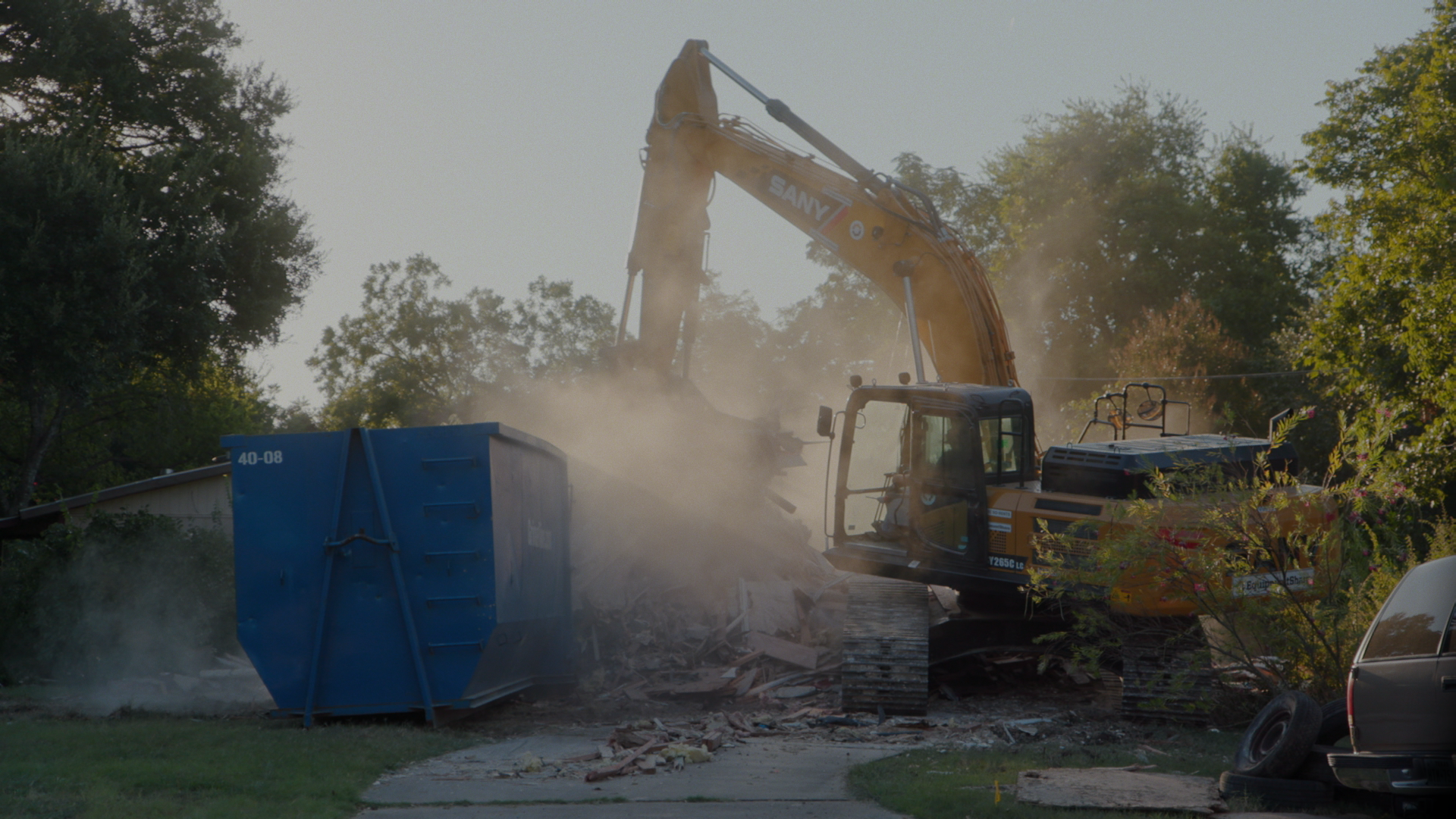Whether you live in Austin, Houston, or Dallas, familiarizing yourself with Texas waste disposal regulations is essential. These laws are particularly important for individuals or organizations seeking to undertake projects requiring significant waste management, such as large-scale cleanouts, renovations, or construction.
Proper waste disposal is a key part of maintaining environmental safety and public health. Texas has strict regulations to ensure that waste is managed responsibly, covering residential, commercial, and industrial levels.
If you’re a homeowner, business owner, or contractor in Texas, understanding these laws can help you avoid fines, prevent safety hazards, and maintain a clean local area.
In this guide, we’ll cover the most important aspects of Texas waste disposal laws, including key legislation, prohibited activities, and best practices for responsible waste management.
Let’s begin!
Key Legislation Governing Waste Disposal in Texas
 Texas has several state and federal laws in place to regulate how waste is handled, transported, and disposed of. Whether you’re overseeing a small residential project or managing a construction site, understanding these regulations is crucial for ensuring compliance and avoiding penalties.
Texas has several state and federal laws in place to regulate how waste is handled, transported, and disposed of. Whether you’re overseeing a small residential project or managing a construction site, understanding these regulations is crucial for ensuring compliance and avoiding penalties.
Texas Solid Waste Disposal Act (Chapter 361, Health and Safety Code)
The Texas Solid Waste Disposal Act establishes policies for waste management, covering everything from municipal solid waste to industrial and hazardous waste disposal. It also sets regulations for permitting and enforcement to protect public health and the environment.
Texas Litter Abatement Act (Chapter 365, Health and Safety Code)
The Texas Litter Abatement Act specifically targets illegal dumping and littering, prohibiting the disposal of solid waste in unauthorized areas. Violators can face significant fines and legal consequences, particularly for repeat offenses.
Resource Conservation and Recovery Act (RCRA)
As a federal regulation, RCRA governs the disposal of hazardous waste. It requires businesses and waste facilities to follow strict guidelines for handling and disposal to minimize environmental impact.
The Texas Commission on Environmental Quality (TCEQ) is the primary agency responsible for enforcing these laws and issuing permits for waste disposal facilities.
Permitting and Regulatory Requirements
If you generate a significant amount of waste, you need to be aware of local permitting and regulatory requirements. This knowledge is particularly vital for individuals and corporations with extensive or regular waste management requirements.
Depending on the type of project and the amount of waste generated, you may need a permit from the TCEQ to dispose of it legally. Permitting requirements vary depending on the type and volume of waste involved.
Municipal Solid Waste (MSW) Permits
Facilities that process household and non-hazardous commercial waste must obtain an MSW permit. This permit includes landfills, transfer stations, and recycling centers.
Industrial and Hazardous Waste Permits
Businesses that produce hazardous waste must obtain special permits for the safe handling and disposal of these materials. Common examples include medical facilities, manufacturing plants, and laboratories.
Construction and Demolition Waste Management
Large-scale construction projects may require specialized permits to properly dispose of materials such as concrete, wood, and metals. Some municipalities also require construction debris to be recycled.
If you’re unsure whether you need a permit, consulting with the TCEQ or a licensed waste disposal provider can help ensure compliance. Experienced local providers like Grime Time can guide you through Texas waste disposal regulations and ensure your waste is disposed of legally and securely.
Prohibited Activities and Penalties for Illegal Dumping
Illegal dumping is strictly prohibited in Texas and carries serious consequences. The state has implemented specific laws to prevent improper waste disposal and protect the environment.
Common Illegal Dumping Practices
- Disposing of solid waste on unauthorized land, including rural and undeveloped areas.
- Dumping hazardous materials such as chemicals, batteries, and industrial waste in public spaces.
- Burning trash without a proper permit, which can release harmful pollutants into the air.
Penalties for Violations
- Class C Misdemeanor: Disposing of five pounds or less of waste can result in fines of up to $500.
- Class A Misdemeanor or State Jail Felony: Dumping larger amounts of waste, especially hazardous materials, can lead to significant fines and potential jail time.
Protecting the environment is a collective effort. If you witness illegal dumping, we encourage you to report it to local law enforcement or the TCEQ for investigation.
Responsibilities of Waste Generators
Anyone generating waste in Texas, whether at home or for commercial purposes, has a legal obligation to ensure proper disposal. Regardless of the scope and nature of your project, you should be familiar with the following regulations to ensure safe and legal waste disposal:
Proper Waste Segregation
Hazardous waste must be kept separate from non-hazardous waste to prevent contamination and ensure appropriate handling. Items like paint, electronics, and batteries often require special disposal methods.
Accurate Record-Keeping
Businesses and waste management facilities must maintain records of their waste disposal practices. This documentation helps track waste streams and ensures compliance with state regulations.
Using Authorized Disposal Facilities
All waste must be transported to TCEQ-approved facilities or handled by licensed waste haulers. Failing to use an authorized disposal service can result in fines and potential legal consequences.
If you manage a construction site or business, working with a licensed dumpster rental provider like Grime Time ensures compliance with Texas waste disposal laws. With years of experience in the Texas waste disposal industry, we know the requirements in detail, allowing us to guide customers through the legalities of waste management.
Local Regulations and Special Considerations
In addition to state laws, many cities and counties in Texas have specific waste disposal regulations that residents and businesses must follow.
Curbside Collection Rules
Some municipalities require waste to be sorted and placed in designated bins for curbside collection. There may also be restrictions on bulky item disposal and collection schedules.
Recycling Requirements
Certain cities mandate recycling for businesses and multi-family properties. Common recyclable materials include paper, plastics, metals, and glass.
Disposal Procedures for Hazardous Waste
Many local governments offer household hazardous waste collection events or designated drop-off locations to safely dispose of items such as paint, pesticides, and electronics.
Before starting a project or disposing of waste, check with your local city or county to ensure you follow the correct procedures.
Final Thoughts
Navigating waste disposal laws in Texas doesn’t have to be complicated, but failing to follow them can have serious consequences. By understanding key legislation, obtaining necessary permits, and working with reputable waste disposal companies, individuals and businesses can stay compliant while protecting the environment.
For those in need of a reliable waste management solution, Grime Time offers professional dumpster rental and waste management services in compliance with all Texas waste disposal regulations.
Contact us directly or use our online price calculator to receive a free quote for your project.
Frequently Asked Questions
Do I need a permit to dispose of construction debris?
You may not need a permit if you’re handling mild construction debris from a personal project. However, larger commercial projects typically require waste disposal permits. Check with the TCEQ or your local government for details.
How can I find authorized waste disposal facilities in Texas?
The TCEQ maintains a list of licensed waste disposal and recycling facilities. You can also check with local waste management companies for approved drop-off locations.
What should I do if I witness illegal dumping?
Illegal dumping should be reported to local authorities or the TCEQ. Providing details such as location, time, and a description of the offenders can help with further investigation.
Are there special requirements for disposing of electronic waste?
Electronic waste often contains hazardous components and should be disposed of through designated e-waste recycling programs. Many Texas municipalities offer drop-off locations for old electronics.
Can I burn my household waste?
Open burning of household waste is generally prohibited due to environmental and health concerns. There are some exceptions, but it’s best to check with local regulations before considering this option.




